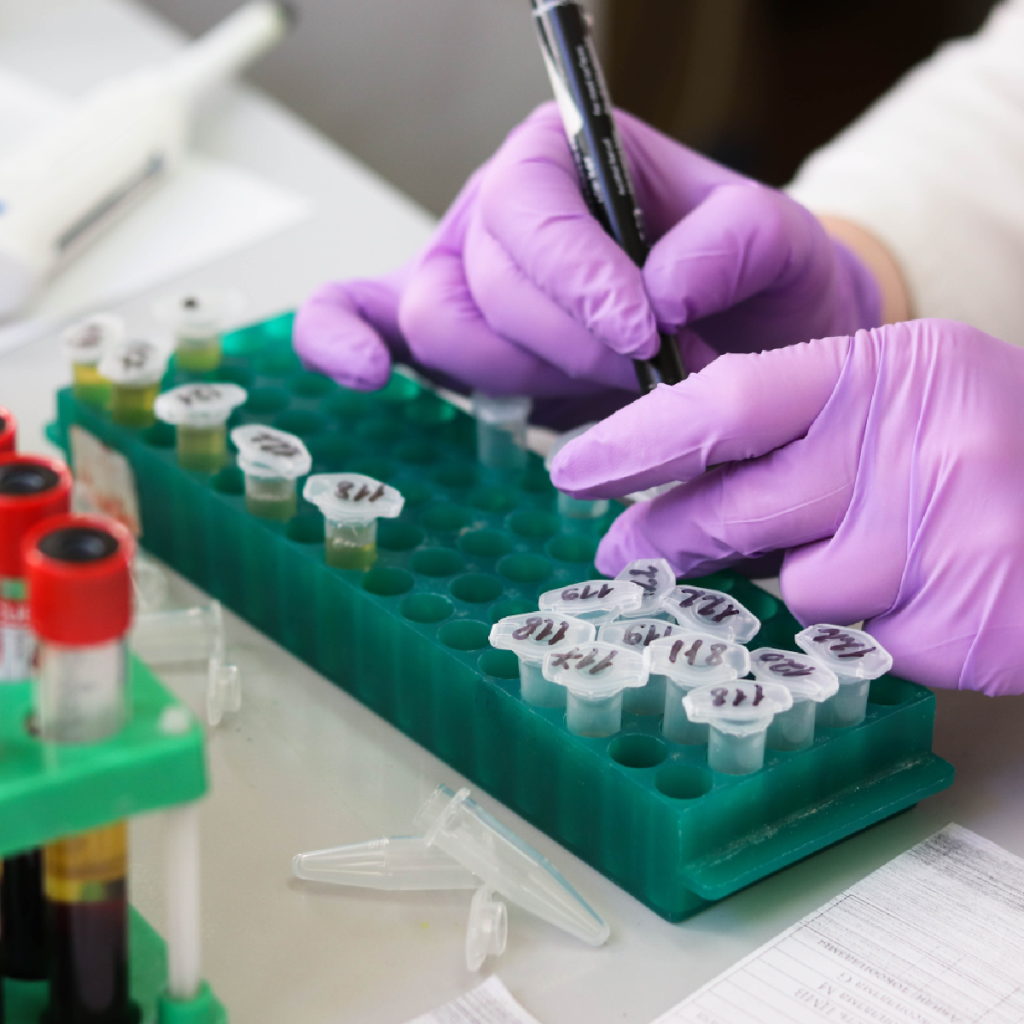Can NMN Activate Sirtuin?
08/08/2023

In recent years, there has been growing interest in the potential of NMN (nicotinamide mononucleotide) to activate Sirtuin, a group of proteins involved in various biological processes. To grasp the significance of this research, it is crucial to understand the basics of NMN and its role in the body.

Understanding the Basics: What is NMN?
NMN, short for Nicotinamide Mononucleotide, is a molecule that is naturally produced in the body as an intermediate step in the biosynthesis of nicotinamide adenine dinucleotide (NAD+). NAD+ is a coenzyme that plays a crucial role in numerous cellular processes, including energy metabolism and DNA repair. As we age, the levels of NAD+ in our bodies decline, which can have negative effects on our overall health and well-being.
However, recent studies have shown that NMN supplementation can boost NAD+ levels and potentially enhance cellular functions. This has garnered significant interest in the scientific community and among health enthusiasts who are looking for ways to improve their overall health and potentially slow down the aging process.
The Role of NMN in the Body
Within cells, NMN is converted into NAD+ through a series of enzymatic reactions. This conversion is essential for the proper functioning of the mitochondria, which are often referred to as the "powerhouses" of the cell. Mitochondria are responsible for producing energy in the form of adenosine triphosphate (ATP), which is vital for the functioning of all cells in our body.
In addition to its role in energy production, NAD+ is also a cofactor for a group of enzymes called Sirtuins. Sirtuins play essential roles in regulating gene expression and maintaining cellular homeostasis. They are involved in a wide range of cellular processes, including DNA repair, inflammation regulation, and stress response. By boosting NAD+ levels through NMN supplementation, it is believed that the activity of Sirtuins can be enhanced, leading to potential health benefits.
How NMN is Produced
NMN can be synthesized naturally within the body from various sources, including dietary precursors such as niacin (vitamin B3) and related compounds. When we consume foods rich in niacin, our bodies enzymatically convert it into NMN, which is then further metabolized into NAD+. This natural production of NMN is a vital part of maintaining optimal NAD+ levels in our cells.
However, in recent years, NMN dietary supplements have gained popularity as a way to increase NAD+ levels. These supplements provide a direct source of NMN, bypassing the need for enzymatic conversion. This has led to a growing interest in the potential health benefits of NMN supplementation, with some studies suggesting that it may improve cellular functions and potentially slow down the aging process.
It is important to note that while NMN shows promise in scientific research, further studies are needed to fully understand its effects and long-term safety. As with any dietary supplement, it is recommended to consult with a healthcare professional before starting NMN supplementation.
Delving into Sirtuin: An Overview
Sirtuin, also known as SIRT, refers to a family of proteins found in all living organisms. These proteins exert significant control over various biological pathways and are involved in processes like aging, DNA repair, and metabolism.
Let's take a closer look at the fascinating world of Sirtuin and explore its functions in more detail.
The Function of Sirtuin in the Body
Sirtuins function as NAD+-dependent enzymes, meaning they require NAD+ as a coenzyme to carry out their activities. This coenzyme plays a critical role in energy metabolism and is involved in many cellular processes.

One of the primary functions of Sirtuins is to regulate gene expression by modifying proteins through a process called deacetylation. By removing acetyl groups from target proteins, Sirtuins can influence their functions and impact cellular processes. This deacetylation process can have wide-ranging effects on the body, from regulating metabolism to controlling inflammation.
Moreover, Sirtuins are involved in DNA repair mechanisms. They play a crucial role in maintaining the integrity of our genetic material by repairing DNA damage caused by various factors such as radiation, toxins, and oxidative stress. This repair process is essential for preventing mutations and maintaining the stability of our genomes.
Additionally, Sirtuins have been shown to affect mitochondrial biogenesis, the process by which new mitochondria are formed within cells. Mitochondria are the powerhouses of the cell, responsible for generating energy in the form of ATP. By promoting mitochondrial biogenesis, Sirtuins help enhance cellular energy production and overall metabolic function.
The Connection Between Sirtuin and Aging
Research has shown a link between Sirtuin activity and the aging process. Sirtuins have been found to regulate various cellular pathways that affect longevity.
One of the key mechanisms through which Sirtuins impact aging is by modulating DNA repair. As we age, our DNA becomes more prone to damage, leading to an accumulation of mutations. By enhancing DNA repair mechanisms, Sirtuins can help minimize the accumulation of DNA damage, thus slowing down the aging process.
Furthermore, Sirtuins play a role in cellular senescence, a state in which cells lose their ability to divide and function properly. Cellular senescence is closely associated with aging and age-related diseases. Sirtuins have been shown to regulate the pathways involved in cellular senescence, potentially delaying the onset of age-related decline.
In conclusion, Sirtuin proteins are fascinating molecules that have a profound impact on various biological processes. From regulating gene expression to influencing aging, Sirtuins are key players in maintaining cellular health and promoting longevity. Further research into the functions and mechanisms of Sirtuins may unlock new insights into aging and potentially pave the way for novel therapeutic interventions.
The Relationship Between NMN and Sirtuin
Given the importance of NAD+ in Sirtuin activity, researchers have explored whether NMN supplementation can directly affect Sirtuin levels and function.
Sirtuins, a class of enzymes found in all living organisms, play a crucial role in regulating various cellular processes, including DNA repair, metabolism, and stress response. These enzymes require NAD+ as a coenzyme to carry out their functions effectively. NAD+ serves as a vital component in the cellular energy production process, and its levels decline with age.
As we age, the decline in NAD+ levels can lead to reduced Sirtuin activity, which in turn may contribute to the development of age-related diseases and decline in overall health. Therefore, finding ways to boost NAD+ levels and enhance Sirtuin activity has become an area of intense research.
How NMN May Activate Sirtuin
Studies suggest that NMN can increase NAD+ levels within cells, thereby providing more substrate for Sirtuin enzymes to function optimally. NMN, or nicotinamide mononucleotide, is a precursor to NAD+ synthesis and has been shown to effectively raise NAD+ levels in various tissues and organs.
By supplying cells with an abundance of NAD+, NMN supplementation may enhance Sirtuin activity and promote various health benefits associated with Sirtuin regulation. Increased Sirtuin activity has been linked to improved mitochondrial function, enhanced DNA repair, and increased stress resistance.
Furthermore, NMN has been shown to activate other NAD+-dependent enzymes, such as PARPs (poly ADP-ribose polymerases), which are involved in DNA repair processes. This suggests that NMN supplementation may have a broader impact on cellular health beyond its direct effects on Sirtuin activation.
The Potential Impact of NMN on Sirtuin Activity
Research is ongoing to determine the precise mechanisms through which NMN affects Sirtuin activity. Preliminary findings indicate that increased NAD+ availability may enhance Sirtuin-mediated deacetylation and promote cellular functions, such as DNA repair and metabolism.
Sirtuins have been shown to directly deacetylate various proteins involved in DNA repair and metabolism, thereby influencing cellular processes critical for maintaining optimal health. By increasing NAD+ levels, NMN supplementation may provide the necessary resources for Sirtuins to carry out their deacetylation functions efficiently.
Moreover, Sirtuins have been implicated in regulating cellular metabolism, including glucose and lipid metabolism. By activating Sirtuins through NMN supplementation, it is possible that metabolic processes can be optimized, leading to potential benefits in weight management and metabolic health.
While the precise impact of NMN on Sirtuin activity is still being elucidated, the growing body of research suggests that NMN supplementation holds promise as a potential strategy to enhance Sirtuin function and promote overall cellular health.
Scientific Studies on NMN and Sirtuin Activation
Through rigorous scientific research, scientists have sought to uncover the effects of NMN supplementation on Sirtuin activation.
Nicotinamide mononucleotide (NMN) has gained significant attention in recent years due to its potential role in activating Sirtuin enzymes, which are known to play a crucial role in various cellular processes. Sirtuins, a class of proteins found in all living organisms, have been linked to longevity, metabolism, and overall health. Understanding the impact of NMN on Sirtuin activation could provide valuable insights into potential therapeutic applications.

Researchers have conducted numerous studies to investigate the effects of NMN administration on NAD+ levels and Sirtuin activity in different tissues. These studies have shown promising results, indicating that NMN supplementation can lead to elevated NAD+ levels and enhanced Sirtuin activity. Animal studies, in particular, have demonstrated a wide range of positive health effects associated with NMN supplementation.
Overview of Key Research Findings
Several studies have provided compelling evidence supporting the link between NMN supplementation and Sirtuin activation. In a study conducted on mice, researchers observed that NMN administration led to increased NAD+ levels in skeletal muscle, liver, and brown adipose tissue. This increase in NAD+ levels subsequently activated Sirtuin enzymes, resulting in improved metabolic function and increased endurance.
Furthermore, another study conducted on aged mice demonstrated that NMN supplementation improved mitochondrial function and energy metabolism. The researchers observed an increase in mitochondrial density and enhanced oxidative metabolism, suggesting that NMN has the potential to counteract age-related decline in cellular energy production.
In addition to metabolic benefits, NMN supplementation has also shown positive effects on various other physiological processes. Studies have indicated that NMN administration can improve insulin sensitivity, reduce oxidative stress, and enhance cognitive function in animal models. These findings suggest that NMN may have broad therapeutic potential in combating age-related diseases and promoting overall health.
Limitations and Controversies in Current Research
While the research on NMN and Sirtuin activation is promising, there are still several limitations and controversies that need to be addressed. One of the main limitations is the relatively limited number of studies involving human subjects. Most of the research conducted so far has been in animal models, and the translation of these findings to humans needs further investigation.
Moreover, the optimal dosage of NMN supplementation and its long-term effects remain unclear. Although animal studies have provided valuable insights, determining the appropriate dosage for humans requires careful consideration. Additionally, the potential side effects of NMN supplementation need to be thoroughly evaluated to ensure its safety and efficacy.
Furthermore, there are ongoing debates regarding the specific mechanisms by which NMN activates Sirtuin enzymes. While it is widely accepted that NMN increases NAD+ levels, the precise molecular pathways involved in Sirtuin activation are still a subject of investigation. Further research is needed to unravel the intricate interplay between NMN, NAD+, and Sirtuin enzymes.
In conclusion, the scientific studies conducted on NMN and Sirtuin activation have provided valuable insights into the potential benefits of NMN supplementation. However, further research involving human subjects, as well as a better understanding of the optimal dosage, long-term effects, and potential side effects, are necessary to fully comprehend the therapeutic potential of NMN in promoting health and longevity.
Potential Health Benefits of NMN Activation of Sirtuin
If NMN can effectively activate Sirtuin, it may offer a range of health benefits beyond just its impact on aging.
Implications for Aging and Longevity
By counteracting the decline in NAD+ levels associated with aging, NMN supplementation has the potential to improve various cellular functions and potentially slow down the aging process. This could lead to increased healthspan and longevity.
Potential Impact on Metabolic Health
Sirtuin activation through NMN supplementation has been linked to improved metabolic health in animal studies. Enhanced mitochondrial function, better control of blood sugar levels, and increased energy expenditure are some of the potential benefits that may help combat metabolic disorders like obesity and type 2 diabetes.
While the field of NMN and Sirtuin activation is still evolving, it holds promise for unlocking new insights into the biology of aging and potential strategies for promoting health and longevity. As research continues, it will be exciting to see how NMN and its relationship with Sirtuin may shape our understanding of aging and provide new possibilities for improving healthspan and addressing age-related diseases.

 Back to Blog
Back to Blog